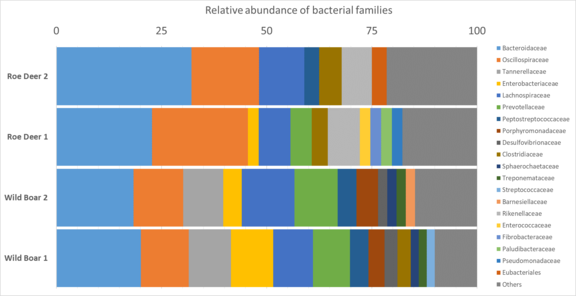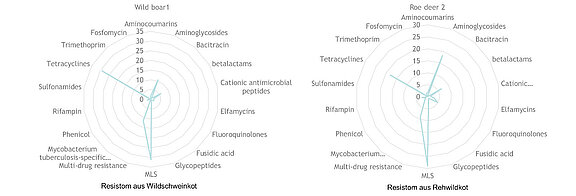Antibiotic-resistant (AMR) pathogens are a major problem in the human, veterinary/agricultural and environmental sectors. Not only are these pathogenens responsible for a large number of preventable deaths, but it is becoming apparent that these three areas are so intensely interconnected that only cross-cutting approaches are suitable for investigation and resolution. The focus of research activity is on extended spectrum betalactamase (ESBL)-producing enterobacteria.
ESBL-producing enterobacteria, especially Escherichia (E.) coli, are in themselves a risk to animal health. However, the pathogens often possess additional resistance properties that further limit therapeutic options and pose a problem for consumer health protection/food of animal origin. The literature on the occurrence of ESBL-producing enterobacteria, particularly E. coli as a lead species, is extensive. However, studies on risk factors in primary production/animal herds for the occurrence and intra-farm spread of these pathogens are scarce. Accordingly, there are virtually no specific intervention concepts that go beyond simply improving biosecurity. The research activities of the AG AMR in recent years serve to fill this gap. In addition to livestock and wildlife, relevant studies on wastewater (municipal wastewater, slaughterhouse effluents) are integrated, as a major source of entry of AMR pathogens into the environment. The essential goal is always the development of viable intervention measures.
In addition to focusing on these model organisms, a holistic approach is of great importance for capturing the evolution of the resistance situation in each of the aforementioned areas. Metagenomic analyses offer the possibility to monitor global (with respect to the microbiome) changes of the resistome (i.e. the totality of all resistance genes in a sample), also using AI-based methods (neural networks, see AG KIDA). Especially in the field of livestock, wildlife, and the environment, appropriate metagenome/resistome studies can help to fill gaps in the global understanding of the epidemiology of AMR and ultimately be used to develop intervention/control approaches.



